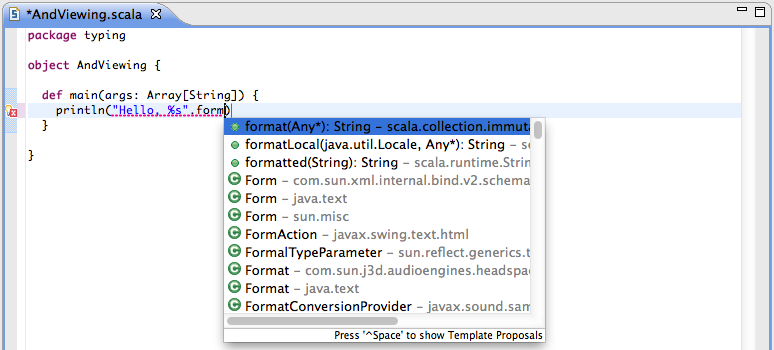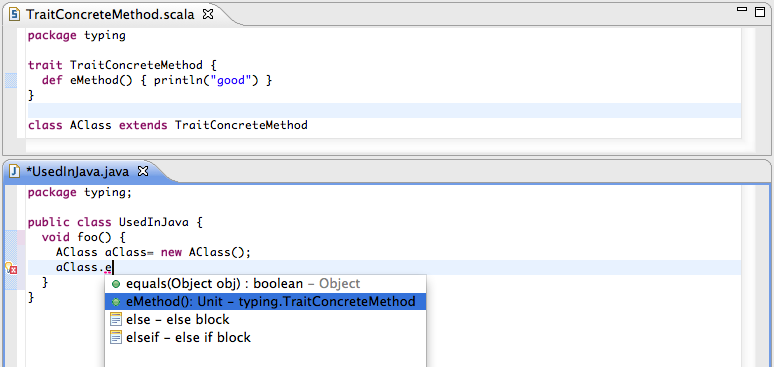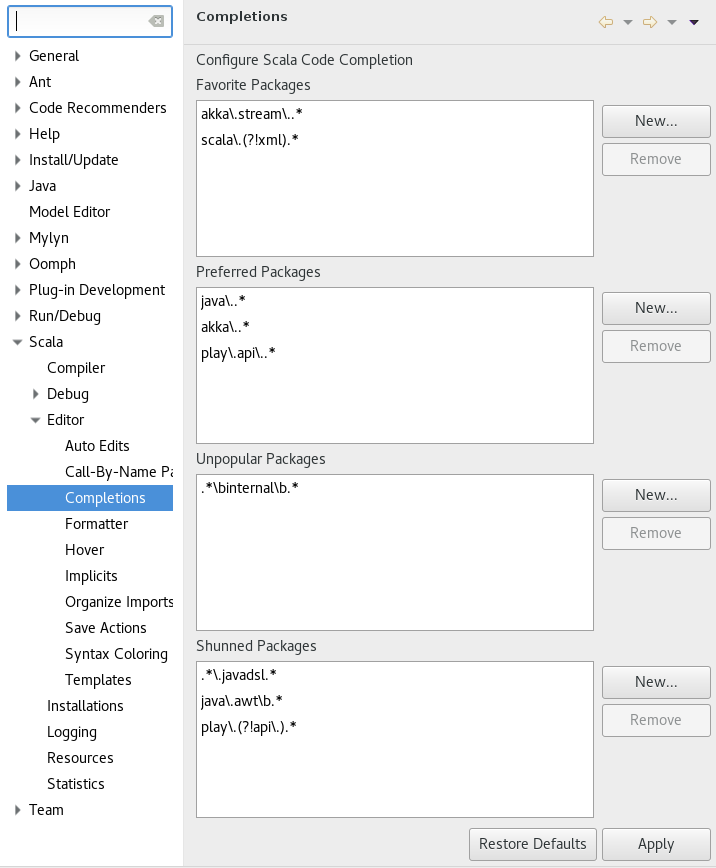Code Completion updated
Scala IDE provides full code completion support, returning the entities available in the current context. Code completion is enable by using Ctrl+Space in the Scala Editor.
In Scala source files, code completion returns the valid Scala and Java proposals.

The Scala elements compatible with Java are provided in Java source files.

Type completion relevance new
The order in which type completions are presented to the user can be tweaked in Preferences → Scala → Editor → Completions based on their package:

Generally, completions are ordered by a so called relevance score, that is modified accordingly if the package matches one of the supplied regular expressions. Favorite Packages get a significant, and Preferred Packages a slight bonus to their relevance scores. Likewise, Unpopular Packages get a slight, and Shunned Packages a significant penalty. If a package is matched by multiple regular expressions, the associated bonuses or penalties are simply added up (even if the regular expressions are part of the same group). This can be exploited for fine tuning. For example, adding scala\.(?!xml).* to Favorite Packages and scala\.collection\.immutable\b.* to Preferred Packages will add a significant bonus to all Scala types (except for APIs under scala.xml), but an even slightly larger bonus to immutable Scala collections, to make sure that they are preferred to their mutable counterparts. Note that we would have gotten a similar effect, if we had added scala\.collection\.immutable\b.* to Favorite Packages as well, but then the added bonus for immutable collections would have been bigger. Related, but not identical behaviour, would be observed after adding scala\.collection\.mutable\b.* to Unpopular Packages or Shunned Packages.
Warning
The supplied regular expressions are matched against full package names. A partial match is not enough. Always double check them if you wonder why your changes do not have the desired effect.
Completion overwrites
Users can choose if identifiers inserted by the code completion mechanism should overwrite already existing ones. This is a very useful feature if one decides to change already existing source code. For example, if we have the following
List(1).fl^map(List(_))
where ^ denotes the cursors position, it would not be that useful when as completion flatMap is chosen but the already existing map is not replaced. Completion overwrites allow exactly these sort of replacements. They need to be configured in Preferences → Java → Editor → Content Assist and then in the section Insertion.
A small detail to mention here, is, that it is possible to toggle between the completion modes by holding Ctrl while applying the completion.


